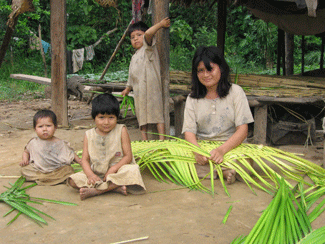Impatience generates social inequalities

We present an explanation about the origins of monetary income inequality when an economically self-sufficient society opens to a market economy. The chain of associations runs from patience, to the accumulation of different forms of human capital, to self-selection into different occupations, and to the division of labor, which contributes to monetary income inequality. In a self-sufficient society, patience is exogenously determined and people rely on folk knowledge as the only form of human capital.
With the establishment of schools, patient and impatient people sort themselves out by the type of human capital they begin to accumulate. Impatient people do not acquire folk knowledge because return to schooling takes many years to bear fruit. Schooling opens opportunities in occupations outside the village, whereas folk knowledge enhances employment opportunities that draw on farming or foraging. Self-selection into different occupations with different earnings potential spawn s monetary income inequality.
To test the explanation, we draw on data from a foraging–farming society in the Bolivian Amazon, the Tsimane'. We collected data during four consecutive quarters in 1999–2000 and a follow-up interview (2004). Data came from 151 adults (age, 16 years or more) from all households (n =48) in two villages with different levels of market exposure. During 1999–2000, impatience was associated with (a) greater folk knowledge and fewer years of schooling, (b) lower likelihood of working in wage labor, and (c) greater likelihood of working in rural subsistence occupations. People who had been patient in 1999–2000 had greater wage earnings and more modern physical assets in 2004.
References
The origins of monetary income inequality - Patience, human capital, and division of labor

